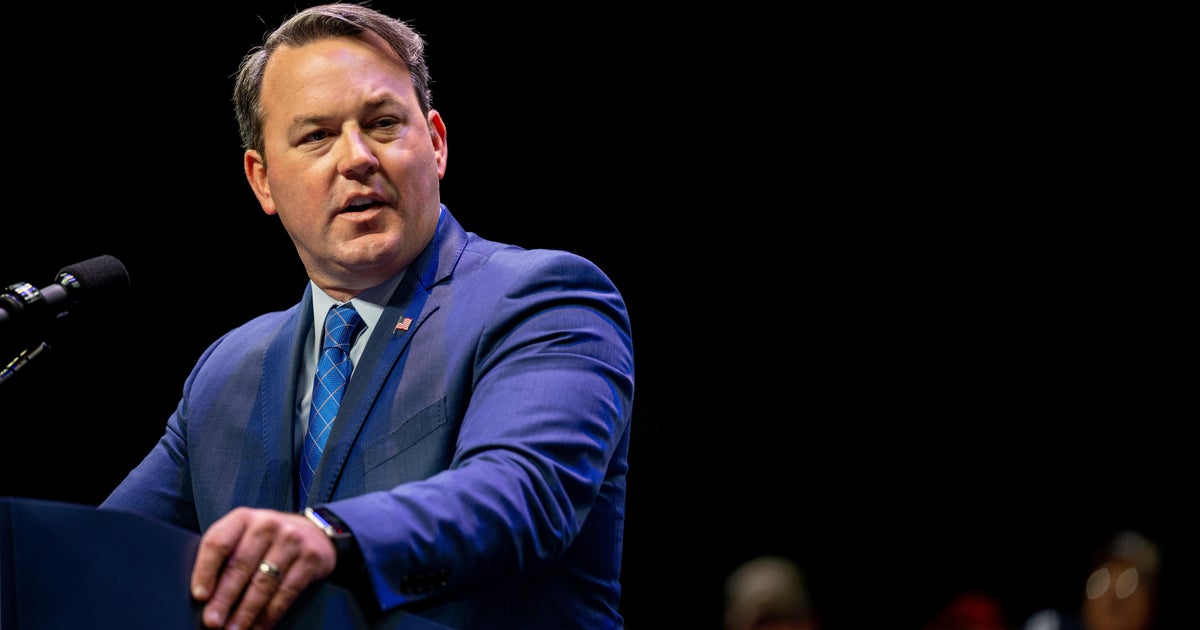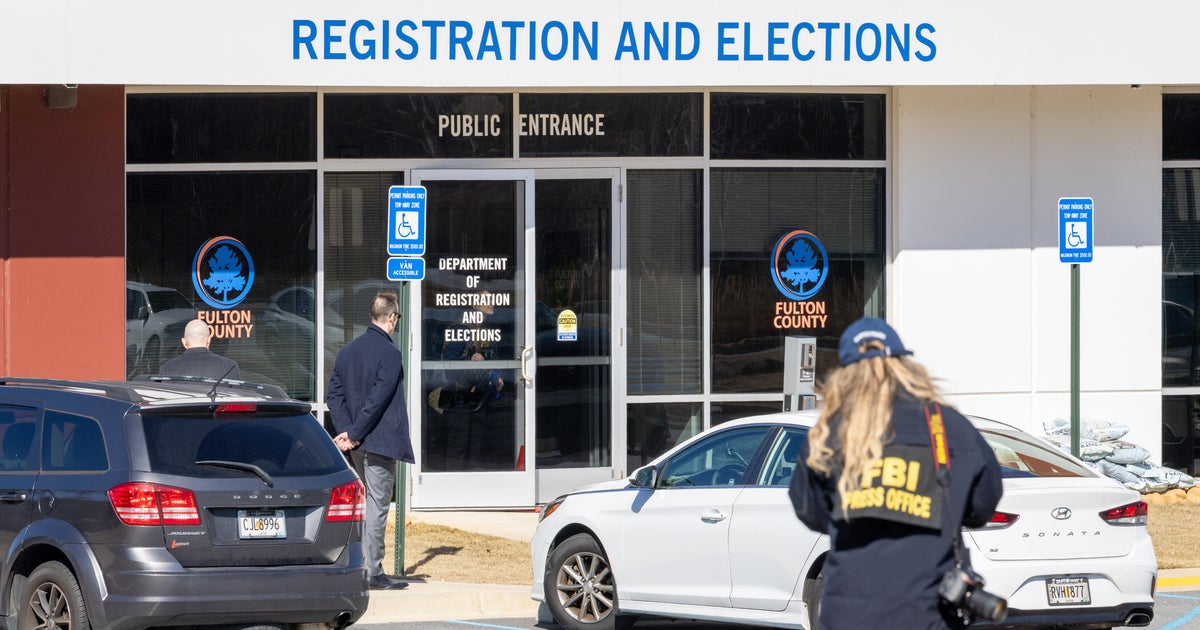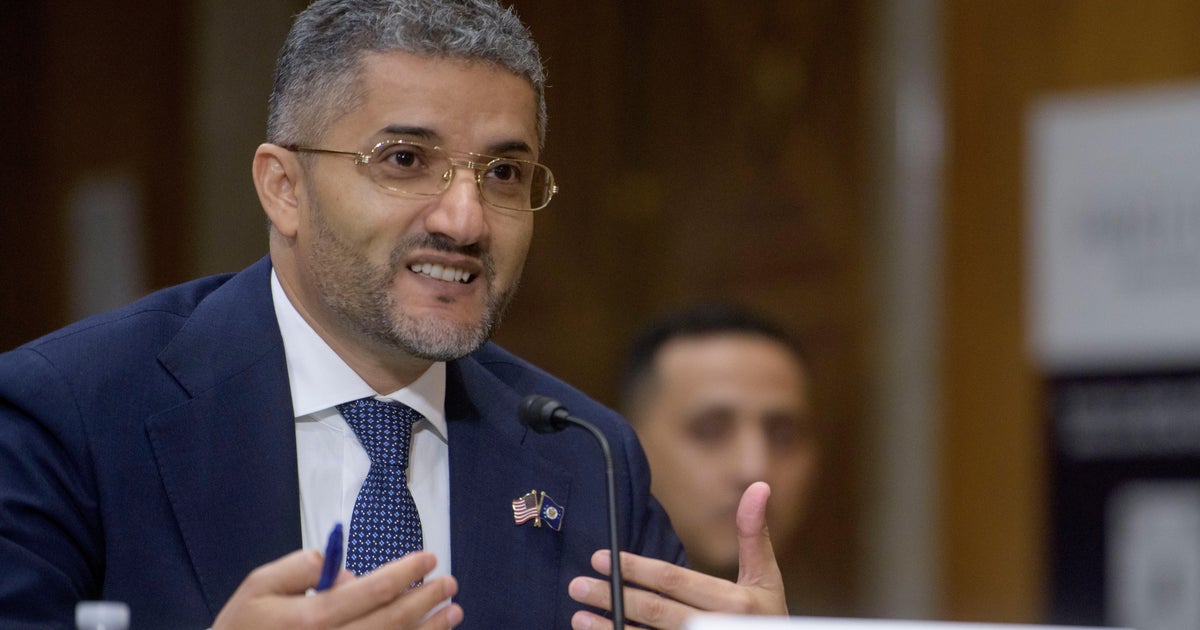Wisconsin Republicans sued for submitting their own electors in 2020 presidential campaign
A lawsuit filed Tuesday morning is taking aim at Wisconsin Republicans who submitted their own slate of presidential electors after the 2020 presidential campaign and asking a judge to declare that action unlawful.
The lawsuit, which was filed in state court in the state capital, Madison, by Democratic presidential electors and another Wisconsin voter, names the defendants as 10 GOP electors and two others "who conspired with, aided, and abetted them." The complaint says that the defendants "helped lay the groundwork for the events of January 6, 2021" and "helped lay the foundation for a nationwide scheme to override the results of the 2020 election" when they submitted a Republican slate of presidential electors on December 14, 2020.
"They did so even though they knew that Biden and Harris had won the election in Wisconsin; even though those results had been recounted and certified; and even though Trump and Pence had exhausted all available legal mechanisms for challenging the outcome," the complaint alleged. "The Wisconsin fraudulent electors and their counterparts in the other swing States purported to cast electoral votes for Trump and Pence because they hoped to lay the foundation for Pence and Congress to count their ballots on January 6, 2021, and to reject those cast by the real electors who had won the popular vote."
The plaintiffs allege that the act of submitting a false slate of electors was part of an attempt by Trump and his allies "to overturn the election results by assembling slates of fraudulent presidential electors in select swing States where he had lost." Pence rejected the theory that the alternate electors could be counted instead of legally-cast electors. Congress ultimately certified the election for President Biden in the early hours of January 7, 2021, hours after Trump supporters attacked the U.S. Capitol and delayed the count.
The plaintiffs are asking a Wisconsin judge to declare that submitting the slate of electors was unlawful. They also want the individuals to be banned from being involved with the presidential elector process again in Wisconsin because they say there's a chance that the defendants or people inspired by them "will violate these criminal prohibitions again in the future."
"The individuals named in this case schemed to hijack Wisconsin's role in selecting the president of the United States and to override the will of the voters," Jeff Mandell, president of the liberal firm Law Forward and an attorney representing the plaintiffs, said in a statement. "These fraudulent electors crossed a line. Their disregard for the law helped lay the groundwork for the insurrection of January 6th. We can't allow this to ever happen again."
Shortly after the GOP electors met in Madison that day, the Wisconsin Republican Party released a statement saying that the group had met to preserve legal options for the Trump campaign.
"While President Trump's campaign continues to pursue legal options for Wisconsin, Republican electors met today in accordance with statutory guidelines to preserve our role in the electoral process with the final outcome still pending in the courts," former Wisconsin Republican Party Chairman Andrew Hitt said in a statement on Dec. 14, 2020.
The Wisconsin Elections Commission unanimously concluded in March that the GOP electors didn't violate any laws because those involved said publicly and in legal filings "that they were meeting to preserve legal options while litigation was pending."
CBS News has attempted to contact the defendants and will update with any responses.
CBS News previously reported that Michigan GOP co-chair Meshawn Maddock said at an event earlier this year that "the Trump campaign asked us" to submit a document claiming that the state's 16 Electoral College votes should go to Trump.
Wisconsin and Michigan were two of several battleground states that sent slates of electors falsely claiming that Trump won those states. The liberal advocacy group American Oversight posted copies of those documents last year.
The Wisconsin Republicans met in December 2020 shortly after the Wisconsin Supreme Court rejected an attempt by the Trump campaign to challenge the results of the state's recount, which showed Mr. Biden had won the state by more than 20,600 votes. The Trump campaign challenged that ruling at the U.S. Supreme Court, but the petition was denied in February 2021.
The lawsuit cites two memos written by defendant Kenneth Chesebro to Jim Troupis, who represented Trump's campaign in the recount and is also named as a defendant, in which Cheseboro laid out steps for Republicans to take "so that the votes might be eligible to be counted if later recognized (by a court, the state legislature, or Congress) as the valid ones that actually count in the presidential election."
The complaint alleges that the GOP electors took those steps "because they intended for their purported votes to be counted, even though they knew they were not the lawfully elected presidential electors for the State of Wisconsin."
The lawsuit alleges the actions by the electors also paved the way for a partisan investigation into the 2020 election in Wisconsin and eroded trust in elections among some voters in the state. The investigator leading that review suggested in March that the state legislature should "look very hard at the option of decertification of the 2020 election," even though the legislature's nonpartisan attorneys have said that isn't possible.
The House Committee investigating the January 6 attack has issued subpoenas to people who participated as "alternate electors" during the 2020 election. A federal judge in March ruled that conservative attorney John Eastman, who was a driving force behind the plan to reject electoral votes in key battleground states, had to turn over a batch of emails to the House committee. Eastman has fought to shield another 3,200 documents from that committee.
Rob Legare, Ellis Kim, Zak Hudak and Melissa Quinn contributed reporting



